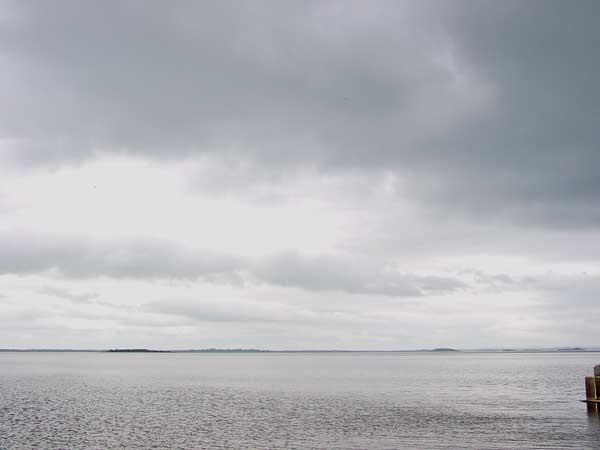|
Last Updated: 2, Apr 2018 - 10:02 |
March 22 is observed internationally as World Water Day, as designated by the UN. The UN has commented that, despite the apparent abundance of clean water in most of the developed world, more than 1 billion people around the world lack clean, safe drinking water and more than 2.6 billion lack adequate sanitation services.

Lough Mask - the source of Castlebar's drinking water.
|
In marking World Water Day this year Dr. Jim Bowman, head of the EPA’s Aquatic Environment Unit, reflected on water quality in Ireland:
"Good quality and well protected freshwater is a precious resource that is worth protecting and World Water Day is an opportunity for us to reflect on its importance. Environmental quality in Ireland is generally good; however, the quality of a sizeable portion of our aquatic environment remains in a less than satisfactory condition."
"Ireland faces a considerable challenge in meeting the objective set out in the Water Framework Directive within a tight timeframe. Achieving high or good status for all our waters by 2015 requires specific actions at a national and regional level. However, individually we can also make a very important contribution to achieving these targets through reduced use and the correct and careful disposal of polluting substances, particularly nutrients."
Dr Bowman continued, "The Environmental Protection Agency has been actively co-ordinating the scientific and technical aspects of implementation of the Water Framework Directive in Ireland since its introduction in 2000. To date, Ireland has performed well in implementing this Directive. The country has now reached the critical stage of developing River Basin District management plans to achieve the objectives of the Directive and protect our water resources."
"We will need to markedly intensify our efforts to improve water quality if we are to achieve the objectives of the Water Framework Directive. In order to restore the quality of water the principal measures in the management plans will be directed at the control of nutrient loss to water. For point sources, this will necessitate further upgrading of sewage and industrial waste water treatment plants to facilitate the reduction or removal of phosphorus and/or nitrogen; for certain sewage treatment plants such upgrading is also a requirement under the Urban Waste Water Treatment Directive. For non-point sources the full implementation of the Nitrates Action Plan will be required."
"The River Basin District management plans will set out the collective measures to be implemented to ensure we achieve the Water Framework Directive objectives through the sustainable use of our water resources."
Water use in Ireland: Water is a renewable resource and in Ireland, for the most part, we have a relatively abundant supply due to our high rainfall, though less abundant in the East. This resource is used to supply drinking water and to sustain angling, commercial fisheries and aquaculture and general recreational activities. We depend heavily on a supply of good quality water to maintain these beneficial uses. Our waters and their margins also support much of what is important in Ireland’s aquatic flora and fauna.
Water Quality 2004-2006: In November 2008 the Environmental Protection Agency published the latest in a long series of comprehensive three-year reviews of water quality. Water Quality in Ireland 2004 -2006
The report dealt with all surface water categories, estuarine and coastal waters and groundwater. As noted in this report, and in previous such reports, nutrient enrichment causing eutrophication is the principal and most widespread pressure on our aquatic environment. In freshwaters this enrichment is attributed primarily to excessive inputs of phosphorus. However, excessive levels of nitrate were also recorded in both surface and groundwaters. The principal sources of these contaminants in rivers were found to be discharges from municipal sewage treatment works and agricultural activities.
|
© Copyright 2009 by © Contributor(s) and Castlebar Web Pages 1997 - 2018
..
Top of Page
|